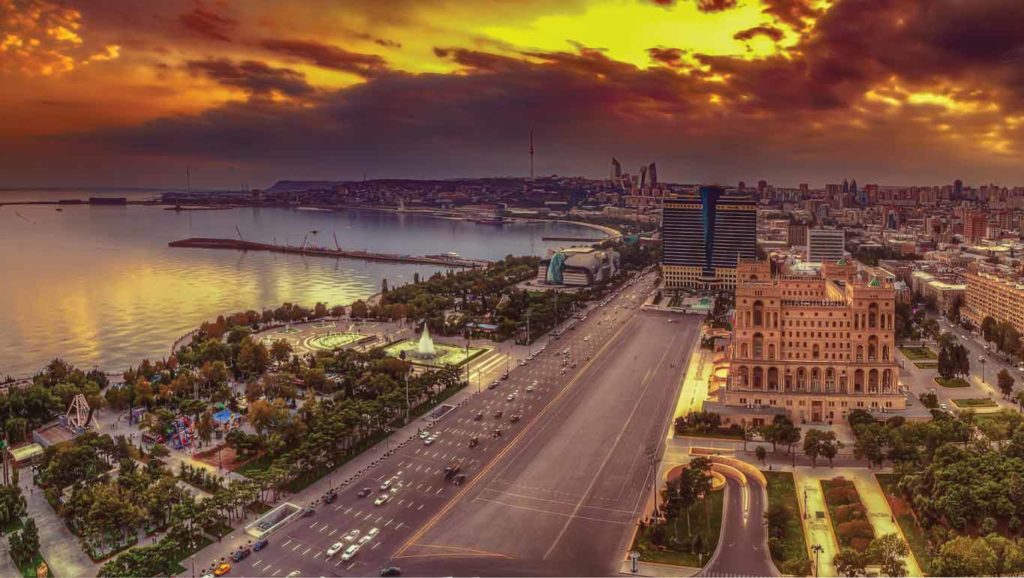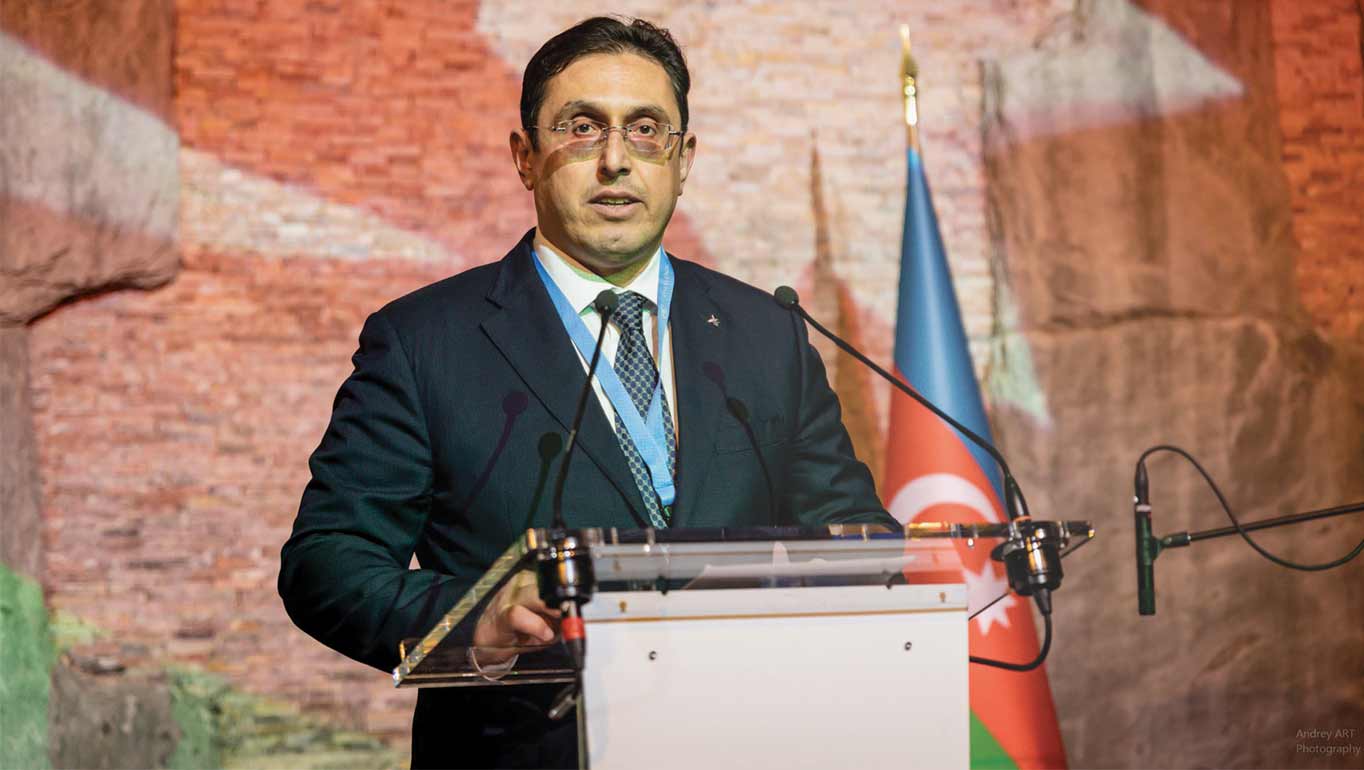Excellency, what are the key priorities of Azerbaijan’s mission in this decade, and why are they important for the world?
One of the key priority areas for Azerbaijan is developing, digitising, and modernising land, rail, and energy transport routes. Developing our economy will help us consolidate peace and security in the region and prevent future generations from experiencing the scourges of war.
Energy diversification, renewable energy, and improving energy efficiency is another important priority for Azerbaijan. This year we have intensified our energy dialogue with the EU, which covers many areas, including oil, gas, renewables, hydrogen, and energy efficiency. We continue to initiate large investment projects in wind and solar energy. We also plan to establish new gas fields which will increase natural gas production and further diversify world energy supplies. Although oil and gas are still predominant industries in the economy of Azerbaijan, my country is set to reach carbon neutrality by 2050.
And lastly, the 2030 Sustainable Development Goals. Last year, my country was among the first countries in the world and in the European region to submit its third National Voluntary Review on SDGs. We are following a strategic approach for SDG implementation and have integrated SDGs into almost 30 state programs.

Azerbaijan is the first muslim-majority country ever to enfranchise women. Could you please shed light on your thoughts and strategies to emerge as one of the most gender-equal muslim nations to date?
We have joined a number of international legal instruments to advance and protect women’s rights in society. In parallel, the government has facilitated the empowerment of Azerbaijani women with a special focus on social development, modernisation and innovations in the implementation of gender policy, thereby, opening multiple ventures of development and progress.
Azerbaijan is known as the “Land of Fire.” Kindly elaborate on the distinct culture represented by these eternal flames across the mountains of your country and how it adds to the advancement of Azerbaijan’s people and economy.
Due to the numerous locations in the country where eternal flames stemming from underground can be found, Azerbaijan has been considered a mysterious place since ancient times. In their records, many renowned historians and travellers have described the spirituality of the Azerbaijani fire culture and traditions with admiration. The most famous sites located near the capital city, Baku, are the Yanardagh, a mountain emitting natural gas, which burns with eternal flames; and the Fire Worshipers’ Temple, built in antiquity and later transformed in the succeeding centuries into a small fortress. The Temple had been a central worshipping and pilgrimage site in the broader Caspian region for many religious groups until most of the Azerbaijanis were converted to Islam in the 10th century.
These eternal flames were the harbingers of Azerbaijan’s later development as a global oil producer. Although historians and travellers began documenting the oil trade in Azerbaijan as early as in the Middle Ages, the industrial development of Azerbaijan’s oil officially began in 1846. In the beginning of the 20th century, Azerbaijan produced almost half of the global oil production and the oil boom brought in European culture, architecture and democratic transformation for the people of Azerbaijan. Today, Azerbaijan is a major regional player and a reliable energy partner to many European and Asian nations and holds the potential to transform itself into an energy transit hub.
Azerbaijan recently hosted “MY SEAS MY OCEANS,’’ an exhibition of artworks by Azerbaijani contemporary artists, drawing attention to the need to save the Earth’s blue lungs and conserve water for future generations. Kindly elucidate more on Azerbaijan’s vision and future plans in this direction.
Pollution of water sources and access to clean water is undoubtedly a global problem. As Ms. Leyla Aliyeva, Vice-President of the Heydar Aliyev Foundation, noted during her opening remarks, the “MY SEAS MY OCEANS” exhibition was held at the United Nations Office in Geneva for this very reason. The paintings used the universal language of art to convey the messages sent to us by nature.
More than 30 legal acts have been adopted in Azerbaijan, and a water commission was established to coordinate water management activities and ensure the efficient use of water resources. The UN and EU are significant partners in this regard. Measures are being taken to increase the population of rare and endangered species of fish in Azerbaijan. Recently, 3,000 juvenile brook trout have been released into the Khakari River of the Zangilan district as part of the program to improve fish populations and biodiversity.
To contain and reverse environmental damage to water sources, the government organises and conducts monitoring work on 41 water basins, including 26 rivers, 10 lakes, 4 reservoirs and the Caspian Sea to determine the degree of pollution of surface waters and offer predictions and solutions. We hope more will be done by the international community to encourage regional cooperation for the protection of transboundary waters.



